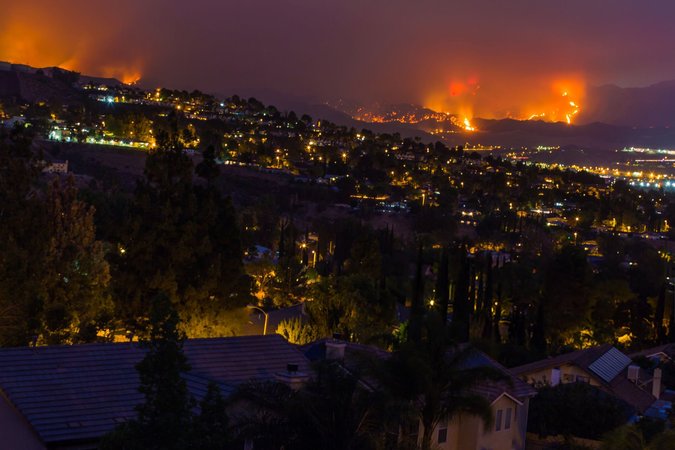Americans Support Climate Policies to Help Most Vulnerable
A new survey finds that 47 percent of Americans do not believe that low-income people face greater risks from climate change than high-income people.
💡 What’s the story?
A new survey by researchers at Stanford University, Resources for the Future (RFF), the research firm ReconMR, and the University of Mary Washington finds that 47 percent of Americans do not believe that low-income people face greater risks from climate change than high-income people.
The new survey examines American support for targeted aid that helps lower-income people respond to climate disasters—for example, subsidized insurance, post-disaster assistance, and government support for relocation to safer areas.
After respondents were made aware of these risk inequalities, people supported policies to assist low-income people by large margins. This suggests that educating the general public about risk inequalities may increase support for policies designed to help the most vulnerable.
🌎 What are some other key findings?
The research team explored which factors predict support for targeted aid and awareness of the unequal burdens of climate risks. In particular, the researchers examined how race/ethnicity, family income, and political affiliation are related to policy preferences.
One surprising result: people who belong to demographic groups most burdened by climate risks were not necessarily more aware of their own vulnerability.
Below are a few more key findings.
- Perceived vulnerability to climate change does not vary notably with income; 17 percent of respondents whose families make less than $50,000 and of respondents whose families make more than $100,000 believe that climate change will harm them a great deal.
- Black Americans feel especially vulnerable to the effects of climate change; 27 percent believe that future warming will hurt them a great deal, compared to 16 percent of Hispanic Americans and 17 percent of non-Hispanic white Americans.
- After respondents were informed of the unequal burden of climate change on poor people, 85 percent thought the government should provide more help to poorer people to deal with climate-related disasters.
- Partisanship is the single strongest predictor of support for environmental justice policies. Factors such as income, and to a lesser extent homeowner status, race, and ethnicity also play important roles in predicting policy preferences.
Author Perspective
“After respondents were informed of the existence of environmental injustices, they overwhelmingly support government action to help people in need. Lived experiences are related to people’s opinions: those in vulnerable situations—who are lower-income, who rent, and who are part of communities of color—are more supportive of these policies than higher-income individuals, white individuals, and homeowners.”
—Jon A. Krosnick, Stanford University Professor and RFF University Fellow
📊 What is Climate Insights?
The Climate Insights survey is the result of a long-standing polling partnership led by researchers at Stanford and RFF. This series examines American public opinion on issues related to climate change through rigorous national surveys of random samples of American adults. This year’s reports represent a survey of 1,000 American adults who were interviewed between October 16, 2023, and February 23, 2024, by ReconMR.
The first installment analyzed American understanding of the fundamentals of climate change and its threat to society. The second uncovered ideas about climate policy options. The third assessed areas of partisan agreement and disagreement for topics covered in the first two reports.
For more about the series, read the related Resources magazine article based off an October Resources Radio podcast episode with Krosnick.
📚 Where can I learn more?
For more, read the report, Climate Insights 2024: American Perceptions of Environmental Justice, by Jared McDonald (University of Mary Washington), Bo MacInnis (Stanford University), and Jon A. Krosnick (Stanford University and RFF).
Resources for the Future (RFF) is an independent, nonprofit research institution in Washington, DC. Its mission is to improve environmental, energy, and natural resource decisions through impartial economic research and policy engagement. RFF is committed to being the most widely trusted source of research insights and policy solutions leading to a healthy environment and a thriving economy.
Unless otherwise stated, the views expressed here are those of the individual authors and may differ from those of other RFF experts, its officers, or its directors. RFF does not take positions on specific legislative proposals.
For more information, please see our media resources page or contact Media Relations and Communications Manager Annie Tastet.




